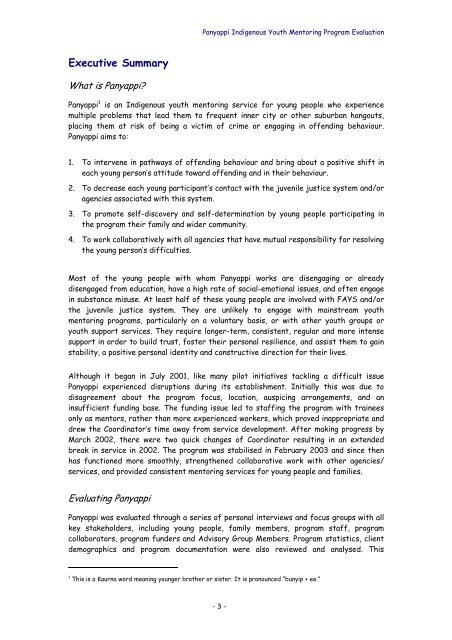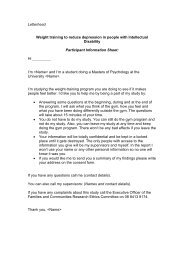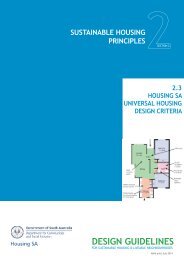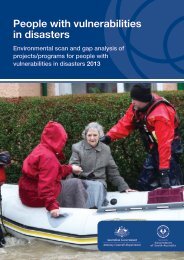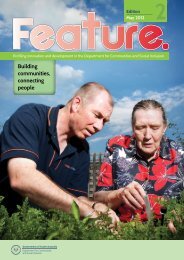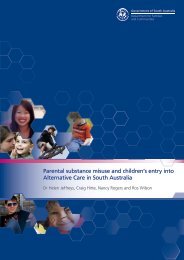Panyappi Indigenous Youth Mentoring Program Evaluation
Panyappi Indigenous Youth Mentoring Program Evaluation
Panyappi Indigenous Youth Mentoring Program Evaluation
Create successful ePaper yourself
Turn your PDF publications into a flip-book with our unique Google optimized e-Paper software.
Executive Summary<br />
What is <strong>Panyappi</strong>?<br />
<strong>Panyappi</strong> <strong>Indigenous</strong> <strong>Youth</strong> <strong>Mentoring</strong> <strong>Program</strong> <strong>Evaluation</strong><br />
<strong>Panyappi</strong> 1 is an <strong>Indigenous</strong> youth mentoring service for young people who experience<br />
multiple problems that lead them to frequent inner city or other suburban hangouts,<br />
placing them at risk of being a victim of crime or engaging in offending behaviour.<br />
<strong>Panyappi</strong> aims to:<br />
1. To intervene in pathways of offending behaviour and bring about a positive shift in<br />
each young person’s attitude toward offending and in their behaviour.<br />
2. To decrease each young participant’s contact with the juvenile justice system and/or<br />
agencies associated with this system.<br />
3. To promote self-discovery and self-determination by young people participating in<br />
the program their family and wider community.<br />
4. To work collaboratively with all agencies that have mutual responsibility for resolving<br />
the young person’s difficulties.<br />
Most of the young people with whom <strong>Panyappi</strong> works are disengaging or already<br />
disengaged from education, have a high rate of social-emotional issues, and often engage<br />
in substance misuse. At least half of these young people are involved with FAYS and/or<br />
the juvenile justice system. They are unlikely to engage with mainstream youth<br />
mentoring programs, particularly on a voluntary basis, or with other youth groups or<br />
youth support services. They require longer-term, consistent, regular and more intense<br />
support in order to build trust, foster their personal resilience, and assist them to gain<br />
stability, a positive personal identity and constructive direction for their lives.<br />
Although it began in July 2001, like many pilot initiatives tackling a difficult issue<br />
<strong>Panyappi</strong> experienced disruptions during its establishment. Initially this was due to<br />
disagreement about the program focus, location, auspicing arrangements, and an<br />
insufficient funding base. The funding issue led to staffing the program with trainees<br />
only as mentors, rather than more experienced workers, which proved inappropriate and<br />
drew the Coordinator’s time away from service development. After making progress by<br />
March 2002, there were two quick changes of Coordinator resulting in an extended<br />
break in service in 2002. The program was stabilised in February 2003 and since then<br />
has functioned more smoothly, strengthened collaborative work with other agencies/<br />
services, and provided consistent mentoring services for young people and families.<br />
Evaluating <strong>Panyappi</strong><br />
<strong>Panyappi</strong> was evaluated through a series of personal interviews and focus groups with all<br />
key stakeholders, including young people, family members, program staff, program<br />
collaborators, program funders and Advisory Group Members. <strong>Program</strong> statistics, client<br />
demographics and program documentation were also reviewed and analysed. This<br />
1 This is a Kaurna word meaning younger brother or sister. It is pronounced “bunyip + ee.”<br />
- 3 -


